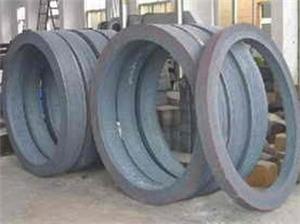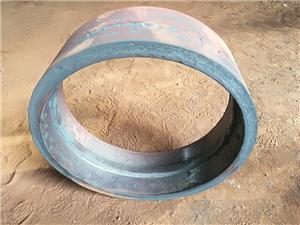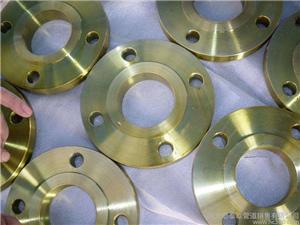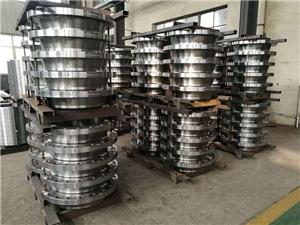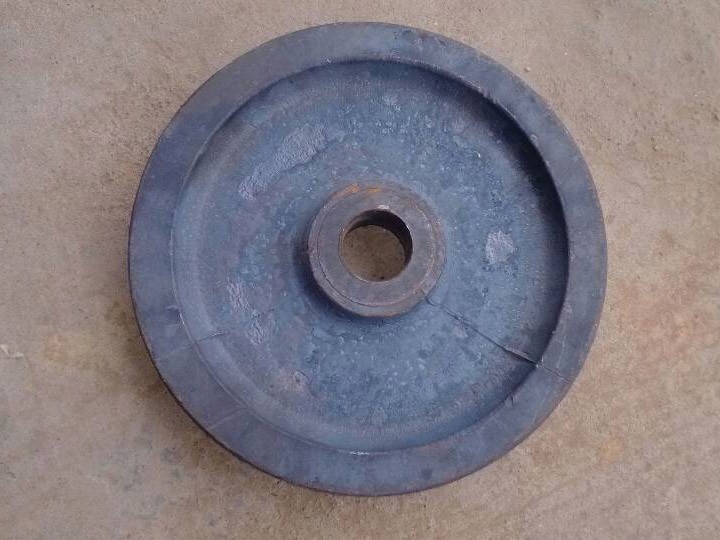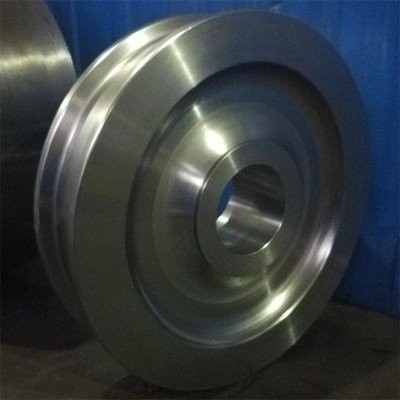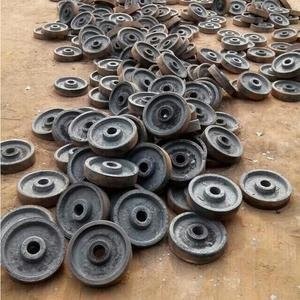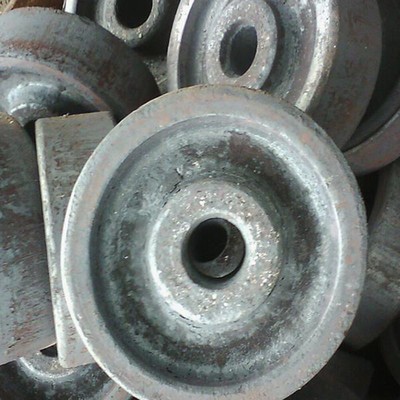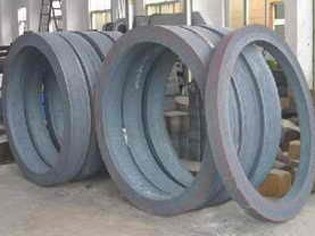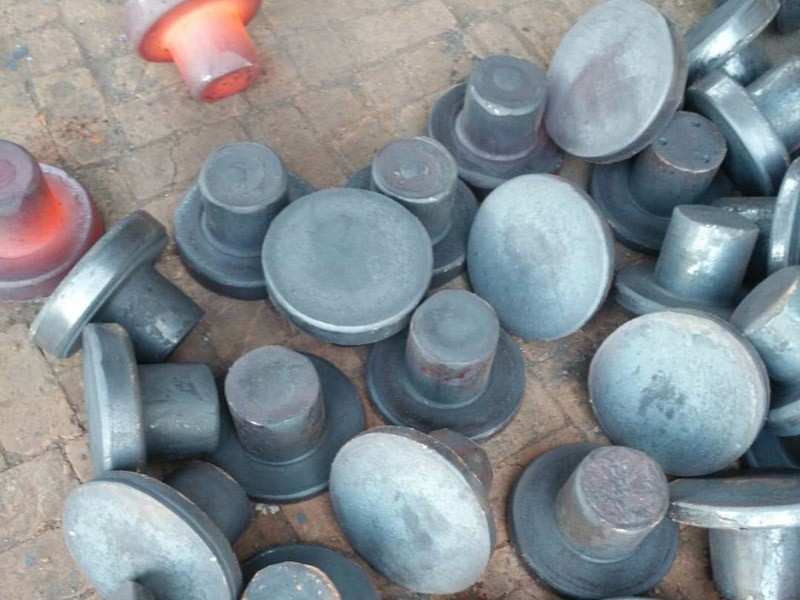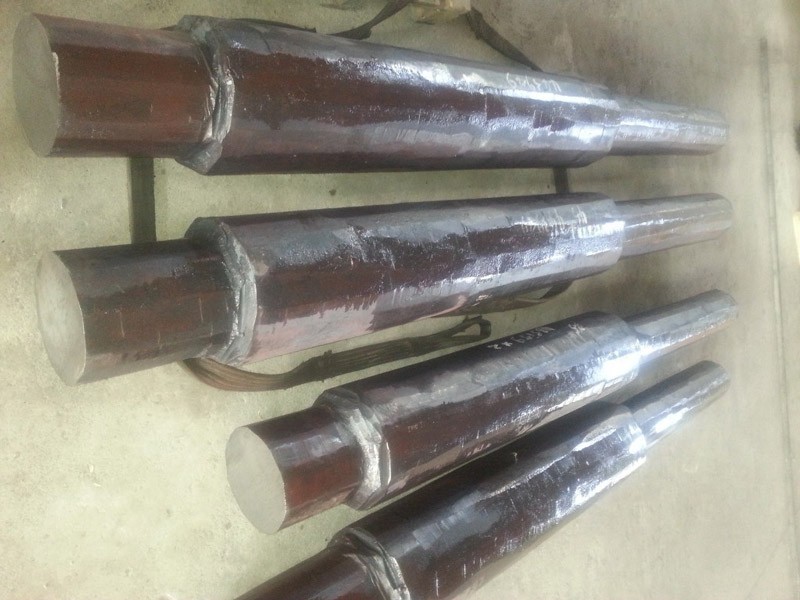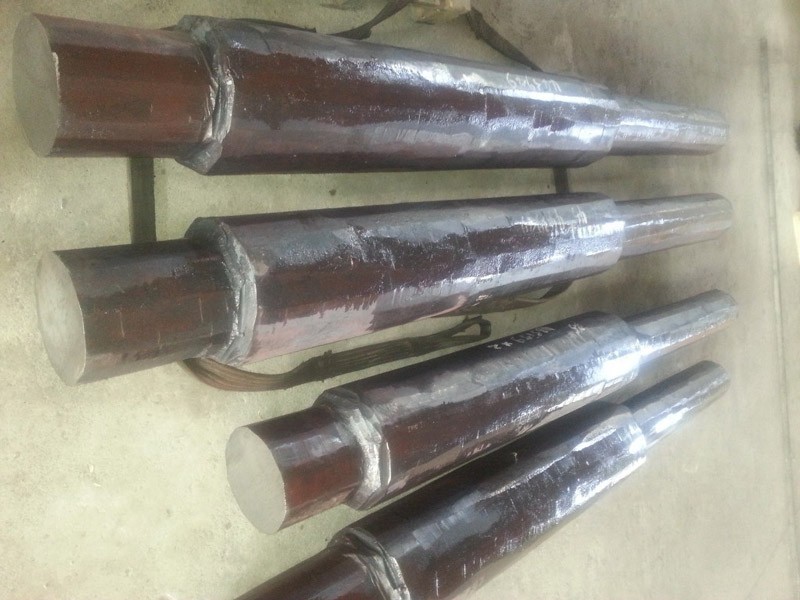
Wheel Forgings
Wheel forging
Product introduction
Wheel forging is a kind of forging, the shape of the wheel, usually used in cranes, harvesters, trains, steam turbines, conveyor and other large mechanical equipment.The forging quality is high, the density is good, the service life is increased, the safety of the large mechanical equipment is better guaranteed.It is the metal that is pressed, typically by the use of a hammer or pressure.The forging process creates fine grain structures and improves the physical properties of the metal.High quality wheel forgings can ensure the magnetic powder, UT ultrasonic, mechanical properties, raw material chemical composition qualified.
Product parameters
Wheel forging in the 1980s, the general use of steel casting, in the production process due to the casting in the porosity, inclusion, quality instability, safety hidden dangers.In the continuous improvement, gradually changed to forging, forging after heat treatment microstructure refinement, surface quenching, hardness strengthening, wear resistance.The heat treatment technology is also improved, and the depth of the hardness layer can reach more than 20mm.
Heat treatment hardness of hot tread of wheel: hb320-380
Key projects + export requirements of high hardness: HRC40 above, HRC50 above.
Iii. Product advantages
Forgings can avoid and reduce many defects of the workpiece and retain the flow linearity of metal, which can significantly improve the mechanical properties of metal materials.Integrity with better density and strength.Forgings are generally hot-forged to promote crystallization and grain refinement, allowing the material to achieve maximum possible strength and consistency, with minimal variation between pieces.So that forgings generally have high strength, structural integrity, reliability, etc.However, the casting with such defects as segregation, shrinkage, porosity and so on cannot be used in such fields as environmental pollution and heavy industry.The creep fatigue strength of forgings is more than 3 times higher than that of castings under high temperature variation.
Wheel forging
Product introduction
Wheel forging is a kind of forging, the shape of the wheel, usually used in cranes, harvesters, trains, steam turbines, conveyor and other large mechanical equipment.The forging quality is high, the density is good, the service life is increased, the safety of the large mechanical equipment is better guaranteed.It is the metal that is pressed, typically by the use of a hammer or pressure.The forging process creates fine grain structures and improves the physical properties of the metal.High quality wheel forgings can ensure the magnetic powder, UT ultrasonic, mechanical properties, raw material chemical composition qualified.
Product parameters
Wheel forging in the 1980s, the general use of steel casting, in the production process due to the casting in the porosity, inclusion, quality instability, safety hidden dangers.In the continuous improvement, gradually changed to forging, forging after heat treatment microstructure refinement, surface quenching, hardness strengthening, wear resistance.The heat treatment technology is also improved, and the depth of the hardness layer can reach more than 20mm.
Heat treatment hardness of hot tread of wheel: hb320-380
Key projects + export requirements of high hardness: HRC40 above, HRC50 above.
Iii. Product advantages
Forgings can avoid and reduce many defects of the workpiece and retain the flow linearity of metal, which can significantly improve the mechanical properties of metal materials.Integrity with better density and strength.Forgings are generally hot-forged to promote crystallization and grain refinement, allowing the material to achieve maximum possible strength and consistency, with minimal variation between pieces.So that forgings generally have high strength, structural integrity, reliability, etc.However, the casting with such defects as segregation, shrinkage, porosity and so on cannot be used in such fields as environmental pollution and heavy industry.The creep fatigue strength of forgings is more than 3 times higher than that of castings under high temperature variation.

